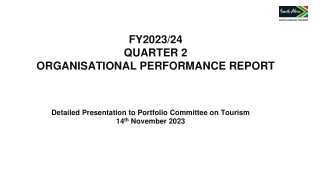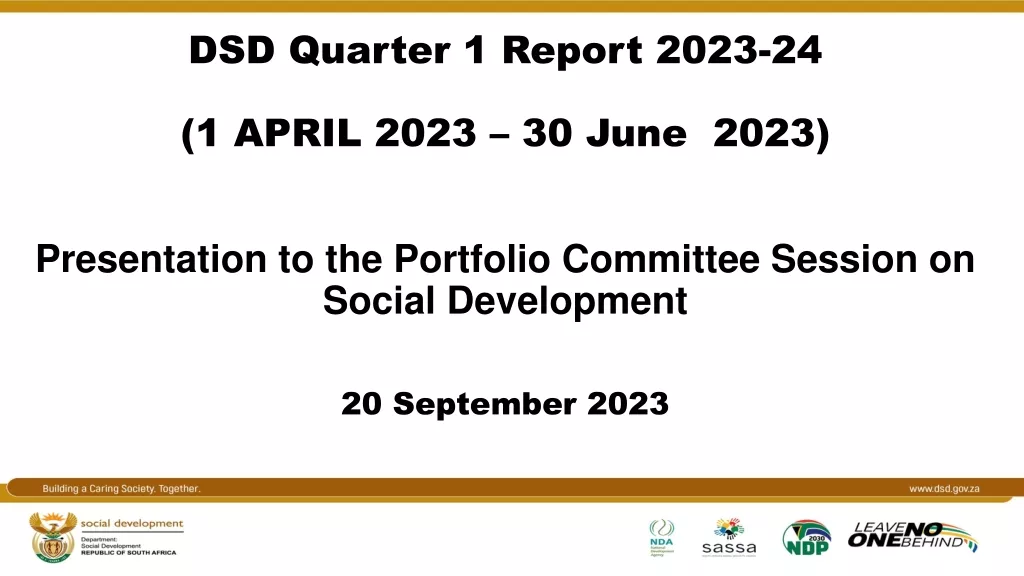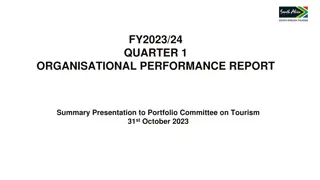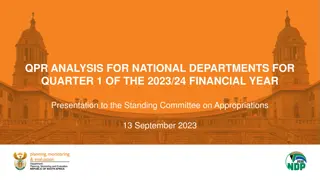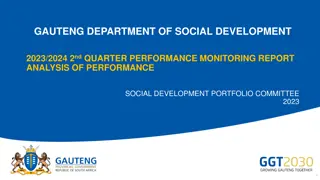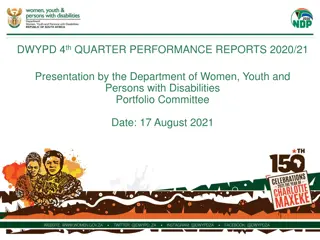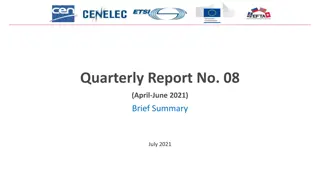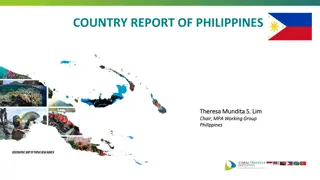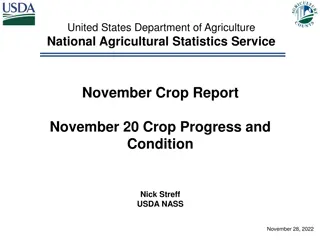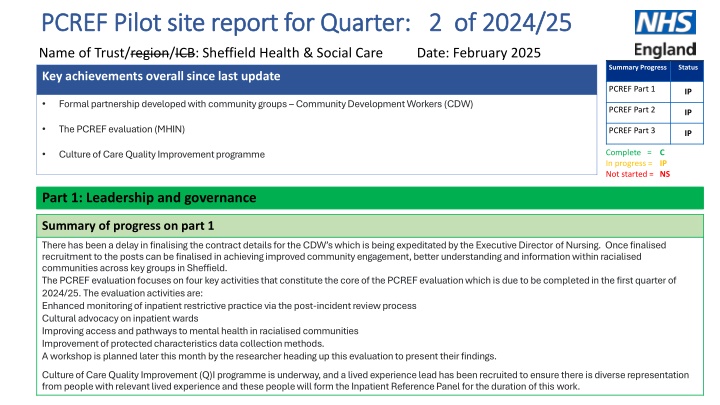
Sheffield Health & Social Care Quarterly Report 2024/25
"Read about the progress and achievements in Sheffield Health & Social Care's PCREF pilot site for Quarter 2 of 2024/25. Explore developments in community partnerships, cultural advocacy, and quality improvement programs. Discover insights on leadership, governance, and legislative duties. Stay informed on efforts to enhance community engagement and access to mental health services in racialized communities." (299 characters)
Download Presentation

Please find below an Image/Link to download the presentation.
The content on the website is provided AS IS for your information and personal use only. It may not be sold, licensed, or shared on other websites without obtaining consent from the author. If you encounter any issues during the download, it is possible that the publisher has removed the file from their server.
You are allowed to download the files provided on this website for personal or commercial use, subject to the condition that they are used lawfully. All files are the property of their respective owners.
The content on the website is provided AS IS for your information and personal use only. It may not be sold, licensed, or shared on other websites without obtaining consent from the author.
E N D
Presentation Transcript
PCREF Pilot site report for Quarter: 2 of 2024/25 PCREF Pilot site report for Quarter: 2 of 2024/25 Name of Trust/region/ICB: Sheffield Health & Social Care Date: February 2025 Summary Progress Status Key achievements overall since last update PCREF Part 1 IP Formal partnership developed with community groups Community Development Workers (CDW) PCREF Part 2 IP The PCREF evaluation (MHIN) PCREF Part 3 IP Culture of Care Quality Improvement programme Complete = C In progress = IP Not started = NS Part 1: Leadership and governance Summary of progress on part 1 There has been a delay in finalising the contract details for the CDW s which is being expeditated by the Executive Director of Nursing. Once finalised recruitment to the posts can be finalised in achieving improved community engagement, better understanding and information within racialised communities across key groups in Sheffield. The PCREF evaluation focuses on four key activities that constitute the core of the PCREF evaluation which is due to be completed in the first quarter of 2024/25. The evaluation activities are: Enhanced monitoring of inpatient restrictive practice via the post-incident review process Cultural advocacy on inpatient wards Improving access and pathways to mental health in racialised communities Improvement of protected characteristics data collection methods. A workshop is planned later this month by the researcher heading up this evaluation to present their findings. Culture of Care Quality Improvement (Q)I programme is underway, and a lived experience lead has been recruited to ensure there is diverse representation from people with relevant lived experience and these people will form the Inpatient Reference Panel for the duration of this work.
Name of Trust/region/ICB: Sheffield Health & Social Care NHS Foundation Trust Date: February 2025 Part 1: Legislative / Statutory duties Please refer to the PCREF Legislation section for more details in the table entitled How trusts are to demonstrate compliance with legislation 1.1 Detentions under the MHA by ethnicity/race Please insert chart/graph here of this data for your trust in the last quarter This information is currently unavailable on our Electronic Patient Recording (EPR) system. We will have access to this data in the near future with the new EPR which is being implemented in March 2025. 1.2 Restraint by ethnicity/race 16. African/Black/Caribbean Asian/Asian British Mixed/Multiple Ethnicities Other Ethnic Group White Not Stated / Unknown 31 5 12 2 11.88% 1.92% 4.60% 0.77% 74.71% 6.13% 195 16
Name of Trust /region/ICB: Sheffield Health & Social Care NHS Foundation Trust Date: February 2025 Part 1: Legislative / Statutory duties continued 1.3a Physical health checks data by ethnicity/race Please insert chart/graph here of this data for your trust in the last quarter We are currently unable to source this data during the time of change Work is underway to ensure recording of demographic data within the EPR. The new EPR goes live from March 2025. 1.3b CYP access rates by ethnicity/race (Not applicable) Please insert chart/graph hereof this data for your trust in the last quarter Not applicable to SHSC
Name of Trust /region/ICB: Sheffield Health & Social Care NHS Foundation Trust Date: February 2025 Part 1: Legislative / Statutory duties continued 1.4 Locally defined access/experience/outcomes data by ethnicity/race 50% of seclusion episodes were for ethnically diverse people 30.3% of the patients who were victims of a sexual safety incident were ethnically diverse and 19.7% did not have their ethnicity recorded at the time of reporting. 36.21% of sexual safety incident instigators were ethnically diverse and 18.97% did not have their ethnicity recorded. 1.5 Death in mental health inpatients data by ethnicity/race No deaths in mental health inpatients services, however of the 7 reported in care homes, 1 did service user did not have their ethnicity recorded.
Name of Trust /region/ICB: Sheffield Health & Social Care NHS Foundation Trust Date: February 2025 Part 1: Legislative / Statutory duties continued 2. Accessible information standards data by ethnicity/race Please insert chart/graph here of this data for your trust in the last quarter This information is currently unavailable on our Electronic Patient Recording (EPR) system. We will have access to this data in the future with the new EPR (implementation March 2025). 3. Patients safety data by ethnicity/race During this quarter 29.18% of people involved in a patient safety incident were ethnically diverse, 18.03% did not have an ethnicity recorded. 171 incidents involved ethnically diverse people, 79 incidents did not have an ethnicity recorded for the people involved and 347 incidents were for white people.
Name of Trust /region/ICB: Sheffield Health & Social Care NHS Foundation Trust Date: February 2025 Part 1: Legislative / Statutory duties continued 4. Complaints data by ethnicity/race 20% of complaints were received from ethnically diverse people and 52.5% did not have an ethnicity recorded for the complainant. Over the past 2 years of formal complaints, people from racialised communities make up 17.82% of the total complaints, 32% did not have an ethnicity recorded and highest complaint category is Access to Treatment and admissions/discharges. 5. PSED data by ethnicity/race Comments Last quarter, 9% of staff at Bands 8 and higher (ex Medics) were ethnically diverse. For this quarter, that figure is 10%.
Name of Trust/region/ICB: Sheffield Health & Social Care NHS Foundation Trust Date: February 2025 Part 1: Legislative / Statutory duties continued 6. Advance choice directives data by ethnicity/race Please insert chart/graph here of this data for your trust in the last quarter Advance Choice Directives are utilised within the Trust; however, work is underway to evaluate the documentation and training to ensure that it is culturally appropriate. To be in the next iteration of our PCREF implementation to address this as a piece of work. 7. Involvement/feedback from advocacy services data by ethnicity/race Please insert chart/graph here of this data for your trust in the last quarter PMC and SACMHA to record ethnicity data in a central dashboard, this will be incorporated into the Trust wide data and systems to reflect the feedback received from our Being There cultural advocacy workers from PMC and the Race Equity Officer from SACMHA. (when will this start?????)
Name of Trust /region/ICB: Sheffield Health & Social Care NHS Foundation Trust Date: February 2025 Part 1: Legislative / Statutory duties continued 9. Involvement/Feedback from carers data by ethnicity/race Please insert chart/graph here of this data for your trust in the last quarter As of quater2 no carer surveys have currently been submitted on Safe2Share. However, this will commence from December 2024. Carers feedback cared being implemented in February 2025. As part of this initiative, we will collect data in relation to ethnicity.
Name of Trust/region/ICB: Sheffield Health & Social Care NHS Foundation Trust Part 2: Organisational Competencies Date: February 2025 National Organisational Competencies Cultural Awareness Staff Knowledge & Awareness Partnership Working Developing Good Outstanding National Organisational Competencies Coproduction Workforce Co-learning Developing Good Outstanding How is your trust? Summary of progress on part 2 Please summarise why you ve selected the above improvement scale. Cultural Awareness Several staff members represented SHSC by attending the Pakistani Independence Day celebration at the Pakistani Muslim Centre to continue building community engagement and deepening relationships with community members and other third sector community organisations. Across the year several cultural awareness training sessions (circa 10 sessions) have been delivered to teams with further sessions planned. Partnership Workinghas been rated as good. As an organisation we have focused on building relationships with our partners. Organisationally we continue to develop links with VCSE. An engagement officer employed by the trust continues to work into Aspiring Communities Together (ACT) to focus on supporting members of the community to access care for the Yemeni community and addressing barriers to care. Funding has been received by Sheffield Charities to recruit two Somali peer support workers into the organisation, to support understanding, development, training and access to care. We have invested in external contracts with a focus on co-learning and co-producing how we develop staff and services. Coproduction The Equality officer from SACMHA moved to SHSC respect team ensuring training, development and awareness on the impact of restrictive practice to service users from a racialised background is understood by staff. Debriefing sessions are held focussing on post-incident reviews with a cultural competency lens, sharing learnings with staff and through a governance structure. Workforce Direct actions from the engagement work in these areas have included helping to resolve practical issues surrounding dignity, cultural needs and accessibility. The engagement leads ensured that service user feedback was taken seriously and was reported to the nurse in charge and ward staff. The leads also supported in signposting service users to voluntary services and advocacy services. Co-Learning as mentioned above, we are ensuring that learnings from partnership working are embedded in services and inform how we work as an organisation. Throughout this period, we have started to plan how over the next 12 months we will ensure that we are learning, and our service users benefit from this. This will be done through the cultural advocacy workers and peer support workers who will look at barriers in access to care or experience of care and identify key themes to improve. This will inform training for staff. At time of report these posts are due to be recruited. On the following pages, please explain what actions have been taken this quarter to improve your organisation s competencies on an organisational level and on a service level acrossthe six national organisational competencies. The specifics of each competency can be found in the PCREF guidance, and the suggested categories given are taken from the self-assessment checklist (refer to Annex B). These national organisational competencies are not an exhaustive list, your Trust may have identified others which are relevant to your services, if so please add them.
Name of Trust /region/ICB: Sheffield Health & Social Care NHS Foundation Trust Date: February 2025 Part 2: Organisational Competencies Cultural awareness Make sure you understand the diverse needs of the community you serve. Co-design culturally appropriate services that reflect the needs of the community you serve. Collect and monitor evidence to assess cultural competence and embed improvements that is an anti- and anti-racism -oppressive approach, including clinical practices and equality, diversity and inclusion practices across the trust workforce Governance and Leadership Policy and Practice The organisation has a regular online all-staff-invite meeting on health inequalities which is chaired by the Health Inequalities lead. Population health inequalities forum. Catering and Food Safety Policy Nutrition, Hydration steering group meetings(NHSG) Community meeting Feedback Staff Feedback Data and Information Legislative and Statutory Compliance Health inequalities dashboard launched in Forest Lodge in July 2024 Please indicate if the organisational competency was embedded on an organisational level [ ] and or a service level [ ] Please provide an example on how the organisational competency has been embedded on an organisation level and/or a service level? 4 weekly/2 weekly and daily menus displayed Cultural and Ethnic Food-A variety of Halal meals offered from Apetito, Bidfoods and made fresh at Forest Close A variety of Caribbean meals offered Information sent out to cater and celebrate-Black History month, Diwali, Ramadan,etc The Catering and Food Policy is being updated to give assurance of all foods served.
Name of Trust /region/ICB: Sheffield Health & Social Care NHS Foundation Trust Date: February 2025 Part 2: Organisational Competencies Staff knowledge and awareness Think about how your training standards, your policies and practices support staff to respond to the diverse needs of ethnic communities and make improvements where necessary. Governance and Leadership Policy and Practice SNG chairs are now part of the process of consultation for all policies that effect all staff. The Human Rights and Practice Leads training is a comprehensive three-day course that is conducted twice a year for approximately 20 staff members. All members of the PCREF team have successfully completed this essential training Data and Information Legislative and Statutory Compliance 90 minutes of training on the practical operation of the Human Rights Act has been incorporated into the SHSC mandatory training package (RESPECT Level 1) for 2025- 2026 Please indicate if the organisational competency was embedded on an organisational level [ ] and or a service level [ ] Please provide an example on how the organisational competency has been embedded on an organisation level and/or a service level? SHSC is the first and currently only Trust in the UK to have made embedding human rights into day-to-day practice a core strategic priority. In practice, this means that human rights go beyond legal compliance, serving as a catalyst for cultural change within the Trust and its principal ethical practice framework.
Name of Trust /region/ICB: Sheffield Health & Social Care NHS Foundation Trust Date: February 2025 Part 2: Organisational Competencies Partnership working Actively engage and develop meaningful and sustainable partnerships at multiple levels ensuring the parity of relationship with your partners are equitable. Promote community champions to build trust and allyship. Governance and Leadership Policy and Practice Quarterly contracting meetings with partners, partners can recruit their own staff instead of recruiting through the NHS. Acknowledging power imbalance of relationships. External contracts with Aspiring Communities Together (ACT), Sheffield Afro Caribbean Mental Health Association (SACMHA). Ongoing community engagement facilitated by an engagement lead. Data and Information Legislative and Statutory Compliance Engagement lead sees approximately 150 people a quarter from the Arabic speaking community in their centre. This is a start in understanding the barriers to services people from communities marginalised by race may face. Please indicate if the organisational competency was embedded on an organisational level [ ] and or a service level [ ] Please provide an example on how the organisational competency has been embedded on an organisation level and/or a service level? Weekly drop-in sessions for Arabic speaking service users, carers and families offering practical and emotional support alongside signposting. Positive feedback has been received within the local community for people who would often otherwise not seek mental health support.
Name of Trust /region/ICB: Sheffield Health & Social Care NHS Foundation Trust Date: February 2025 Part 2: Organisational Competencies Coproduction Create a space for patients and carers from racialised and ethnically and culturally diverse communities to have shared decision making Ensure patients and carers from racialised and ethnically and culturally diverse communities are actively involved in the end-to-end process of designing and delivering culturally competent and patient-centred services. Governance and Leadership Policy and Practice In March 2024 we published refreshed Equality Objectives. Objective 5 is to achieve Gold Level in our aim to be an Anti-Racist organisation ( Accreditation Under The North -West Assembly Anti-racist Framework) in 2024 /25 we are committed to achieving Bronze level. We met with the Northwest Assembly, due to demands on their time they can only assess organisations from their patch. We are hoping that our own region can replicate what the Northwest Assembly did. SNG chairs are now part of the process of consultation for all policies that affect all staff. Data and Information Legislative and Statutory Compliance The national WRES team sent us our report, these were the headlines: 1.We are in the top 22% of Trusts for ethnically diverse representation between Band 8c and the Board 2.We are in the 92nd percentile for harassment from patients etc to our staff 3.We are in the 85th percentile for the likelihood of ethnically diverse staff entering a formal disciplinary process We submitted our WRES data for 2024 in May and our Board received our WRES report in July which we will provide in the quarter 2 return. As above we have published our Equality Objectives and 2023 EDS report https://www.shsc.nhs.uk/sites/default/files/2024- 06/Sheffield%20Health%20and%20Social%20Care%20Equality%20Objectives%20202 4_2028.pdf https://www.shsc.nhs.uk/sites/default/files/2024-06/EDS-Report%20_%202023.pdf Please indicate if the organisational competency was embedded on an organisational level [ ] and or a service level [ ] Please provide an example on how the organisational competency has been embedded on an organisation level and/or a service level? We have a quarterly meeting of the Chairs of our staff network groups with Board members which took place in this period. Every year the Ethnically Diverse Staff Network Group is funded to put on a conference which they themselves plan and facilitate.
Name of Trust /region/ICB: Sheffield Health & Social Care NHS Foundation Trust Date: February 2025 Part 2: Organisational Competencies Workforce Champion inclusive leadership and embed cultural peer support. In particular raise the profile of ethnically and culturally diverse staff whereby their lived experiences in the workforce influences efforts to reduce racial basis from occurring. Support the workforce to improve on staff wellbeing to meet the specific needs of racialised and ethnically and culturally diverse patients and carers. Alignment with the NHS England s Mental Health Workforce Equity Fellowship Programme and its subsequent workstreams. Governance and Leadership Policy and Practice SNG chairs are now part of the process of consultation for all policies that affect all staff. In March 2024 we published refreshed Equality Objectives. Objective 5 is to achieve Gold Level in our aim to be an Anti-Racist organisation ( Accreditation Under The North -West Assembly Anti-racist Framework) in 2024 /25 we are committed to achieving Bronze level. We met with the North West Assembly, due to demands on their time they can only assess organisations from their patch. We are hoping that our own region can replicate what the North West Assembly did. Data and Information Legislative and Statutory Compliance The national WRES team sent us our report, these were the headlines: 1.We are in the top 22% of Trusts for ethnically diverse representation between Band 8c and the Board 2.We are in the 92nd percentile for harassment from patients etc to our staff 3.We are in the 85th percentile for the likelihood of ethnically diverse staff entering a formal disciplinary process We submitted our WRES data for 2024 in May and our Board received our WRES report in July which we will provide in the quarter 2 return. As above we have published our Equality Objectives and 2023 EDS report https://www.shsc.nhs.uk/sites/default/files/2024- 06/Sheffield%20Health%20and%20Social%20Care%20Equality%20Objectives%20202 4_2028.pdf https://www.shsc.nhs.uk/sites/default/files/2024-06/EDS-Report%20_%202023.pdf Please indicate if the organisational competency was embedded on an organisational level [ ] and or a service level [ ] Please provide an example on how the organisational competency has been embedded on an organisation level and/or a service level? We have a quarterly meeting of the Chairs of our staff network groups with Board members which took place in this period. Every year the Ethnically Diverse Staff Network Group is funded to put on a conference which they themselves plan and facilitate.
Name of Trust /region/ICB: Sheffield Health & Social Care NHS Foundation Trust Date: February 2025 Part 2: Organisational Competencies Co-learning Champion reciprocal and mutual co-learning an environment where everyone can be both a teacher and a learner. Trusts work with community champions and/or undertake active outreach to raise awareness of early intervention services responsive to cultural needs and experiences of systemic racism. Governance and Leadership Policy and Practice Our local Reciprocal mentoring programme continues, and we are in cohort 2 of a regional programme The local Reciprocal Mentoring Programme is facilitated by the Equality, Diversity & Inclusion team. The Regional Reciprocal Mentoring Programme is ICB-led. Data and Information Legislative and Statutory Compliance In Sep 2024 there are currently nine x pairings, this is mostly Board members with a variety of ethnically diverse staff in roles such as nursing, corporate, medic, healthcare support worker etc. Please indicate if the organisational competency was embedded on an organisational level [ ] and or a service level [ ] Please provide an example on how the organisational competency has been embedded on an organisation level and/or a service level? The local Reciprocal Mentoring Programme has been active since 2015, it has consistently maintained circa 10 pairings at any given time. Some relationships last for years, some for months. Just recently, a Band 4 Peer Worker was helped by their Board member mentor with interview prep, they achieved a promotion to Band 7.
Name of Trust/region/ICB: Sheffield Health & Social Care NHS Foundation Trust Date: February 2025 Part 3: Feedback Mechanisms Summary of progress on part 3 We had significant rise in responses in July due to roadshows around community and specialised services to push service user feedback led by the engagement team. Due to contract change with Tendable the feedback from Quality Experience survey was stopped and a survey via Qualtrics was created. In the interim the use of Friends and Family Test cards was used as the main way of collating feedback alongside direct feedback when attending community services service user & carer groups through the months of Quarter 2. Returns on Friends and Family tests have been steadily increasing. The use of FFT cards remains a focus to achieve an increase in returns which continues to be below the national average. Patients Feedback Carers/communities feedback Please insert chart/graph and narrative here of this data for your trust in the last quarter (specify which tools/measures you used to collate this data) Submissions from our Safe2Share survey, 4 of the 12 submissions were from ethnically diverse service user, of those submissions 58.33% of responses were negative and 41.67% were positive. The positive themes included the environment and cultural needs were met. FFT responses received from individuals who provided feedback as a carer or family member. Of the 136 responses all feedback was positive, with some suggestions the Trust could do better on wait times, staffing levels, and clearer communications.

